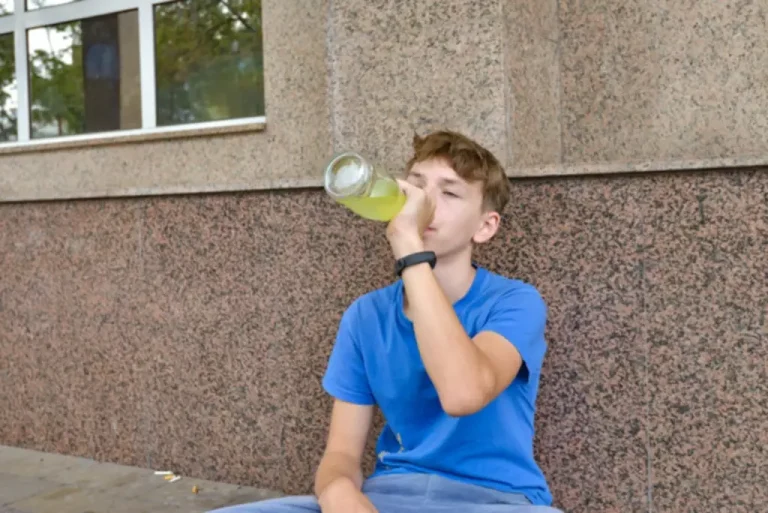Alcohol use: Weighing risks and benefits

Because denial is common, you may feel like you don’t have a problem with drinking. You might not recognize how much you drink or how many problems in your life are related to alcohol use. Listen to relatives, friends or co-workers when they ask you to examine your drinking habits or to seek help.
Dangers of addiction
For example, any amount of drinking increases the risk of breast cancer and colorectal cancer. The evidence for moderate alcohol use in healthy is wine addictive adults is still being studied. But good evidence shows that drinking high amounts of alcohol are clearly linked to health problems.
Abuse is disastrous for health
Explain your concerns and make it clear that your concern comes from a place of love. Start by talking honestly and openly with the friend or family member who’s drinking too much. But always remember that you can’t force someone to give up alcohol. If you find yourself rationalizing your drinking habits, lying about them, or refusing to discuss the subject, take a moment to consider why you’re so defensive. If you truly believe that you don’t have a problem, you shouldn’t have a reason to cover up your drinking or make excuses. For example, you recognize that your alcohol use is damaging your marriage, making your depression worse, or causing health problems, but you continue to drink anyway.
- If you have several glasses of white wine, red wine, or any type of wine each day, you may develop a wine addiction.
- I didn’t particularly like Jukes 1 ($60), which is quite acidic, and I was underwhelmed especially considering how much I like Jukes’ red alternative.
- Sometimes alcoholism develops suddenly in response to a stressful change, such as a breakup, retirement, or another loss.
- Moderate alcohol consumption may increase life expectancy, while alcohol abuse is a strong risk factor for premature death.
Can Pregnant Women Drink Wine?

“Many medical professionals still have this belief that addiction to alcohol is something that is a kind of personal moral failing, and not things that are conducive to treatment with a pill,” he said. Among addiction researchers, however, any reduction in drinking is increasingly seen as a win. Almost 12 million people in the U.S. struggle with alcohol use disorder, defined as more than four drinks per occasion for women and more than six for men, according to the Centers for Disease Control.
They also explain that our emotional state after a stiff drink may be significantly influenced by the context of consumption, how the drink is advertised, and how much alcohol it contains. Aggression and tearfulness were also often reported by heavy drinkers regardless of whether they drank at home, on their own, or out with friends. Spirits were reported as the least conducive to a relaxed state, as only 20 percent of respondents said that distilled drinks helped them to relieve tension.

Muri’s Koji Rice Series 1 ($40) is creamy and warm with sweet rice wine and lavender notes. TÖST ($27/3-pack) has a pleasant tea base, although it lacks complexity. I didn’t particularly like Jukes 1 ($60), which is quite acidic, and I was underwhelmed especially considering how much I like Jukes’ red alternative. “Habits” is the second track on Eminem’s highly anticipated album, The Death of Slim Shady (Coupe de Grâce), delving into Em’s personal battle with addiction.
- At Bedrock Recovery Center, our alcohol addiction treatment programs offer detoxification for alcohol withdrawal symptoms (detox) as part of a complete alcohol treatment plan.
- Someone who is drinking is likely to eat more and gets excess calories from the alcohol.
- Many people suffering from alcoholism need to re-learn to live, handle stress and cope without alcohol.
- Yet even moderate wine drinking can casually turn into binge drinking.
- Take the assessment and get matched with a professional, licensed therapist.
- I’m the one it hurts, so no one has the right to tell me to stop.

Many people with alcohol use disorder hesitate to get treatment because they don’t recognize that they have a problem. An intervention from loved ones can help some people recognize and accept that they need professional help. If you’re concerned about someone who drinks too much, ask a professional experienced in alcohol treatment for advice on how to approach that person.
- You spend a lot of time drinking, thinking about it, or recovering from its effects.
- The wines are produced just like any other wine, but the alcohol is removed before bottling.
- Children are especially sensitive and can suffer long-lasting emotional trauma when a parent or caretaker is an alcoholic or heavy drinker.
It takes tremendous strength and courage to face alcohol abuse and alcoholism head on. Denial is one of the biggest obstacles to getting help for alcohol abuse and alcoholism. The desire to drink is so strong that the mind finds many ways to rationalize drinking, even when the consequences are obvious. By keeping you from looking honestly at your behavior and its negative effects, denial also exacerbates alcohol-related problems with work, finances, and relationships.
